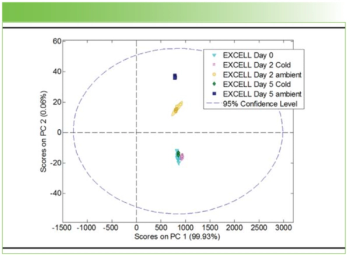
Biomedical Analysis at the Nanometer Scale with SERS
Part of a new podcast series presented in collaboration with the Federation of Analytical Chemistry and Spectroscopy Societies (FACSS), in connection with SciX 2012 ? the Great Scientific Exchange, the North American conference (39th Annual) of FACSS.
An interview with Duncan Graham, the 2012 winner of the Coblentz Society’s Craver Award.
Part of a new podcast series presented in collaboration with the Federation of Analytical Chemistry and Spectroscopy Societies (FACSS), in connection with SciX 2012 — the Great Scientific Exchange, the North American conference (39th Annual) of FACSS.
For more podcasts in this series, visit
Duncan Graham is the Head of Research at the University of Strathclyde in Glasgow, Scotland, and the Director of WestCHEM, the joint chemical sciences research school of Strathclyde and Glasgow Universities.
Professor Graham was selected by the Coblentz Society to receive the 2012 Craver Award in recognition of his pioneering work in surface enhanced Raman spectroscopy (SERS) to generate ultra-sensitive and highly selective methods of detection for a range of analytes, especially bioanalytical targets.
The Craver Award is presented annually to an outstanding young molecular spectroscopist (under age 45) whose efforts are in the area of applied analytical vibrational spectroscopy.
In addition to being the director of WestCHEM, Professor Graham is also the university director for bionanotechnology, the co-director of the Centre for Molecular Nanometrology, and Head of Research for Chemistry at the University of Strathclyde.
More about Professor Graham:
Duncan Graham’
More about the SciX conference:
The traditional North American meeting of FACSS is now SciX - The Great Scientific Exchange. SciX covers the whole of analytical chemistry with an emphasis on emerging technologies. SciX carries the FACSS tradition of a strong technical program (over 100 symposia), many prestigious awards, exhibits, a variety of workshops, an employment bureau and multiple social networking opportunities.
SciX is the National Meeting of the Society for Applied Spectroscopy (SAS).
For more information about the SciX 2012 conference in Kansas City, Missouri, September 30 to October 5, 2012, visit
Follow Spectroscopy and FACSS on social media:
Newsletter
Get essential updates on the latest spectroscopy technologies, regulatory standards, and best practices—subscribe today to Spectroscopy.




